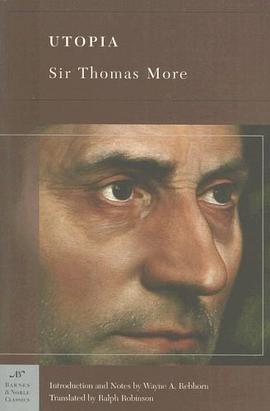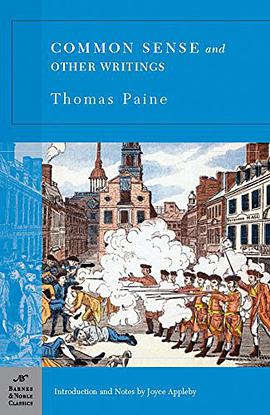

具體描述
Utopia , by Sir Thomas More , is part of the Barnes & Noble Classics series, which offers quality editions at affordable prices to the student and the general reader, including new scholarship, thoughtful design, and pages of carefully crafted extras. Here are some of the remarkable features of Barnes & Noble Classics :
All editions are beautifully designed and are printed to superior specifications; some include illustrations of historical interest. Barnes & Noble Classics pulls together a constellation of influencesbiographical, historical, and literaryto enrich each reader's understanding of these enduring works. 0in 0in 0pt">one of the most influential books in the Western philosophical and literary tradition, Sir Thomas More ’s Utopia appeared in 1516. The formidable Henry VIII had recently assumed the throne in England, and conflicting ideas about religion were fueling the Reformation throughout Europe. A scathing satire, Utopia was hugely successful and vaulted More to the forefront of the growing humanist movement. The story of Utopia is told by a mysterious sailor named Raphael Hythloday, who travels to the New World with the Italian explorer Vespucci and remains at a fort built at the farthest point reached. From there, he discovers a strange island kingdom named Utopia, a pagan and communist city-state in which language, social customs, dress, architecture, and education are identical throughout the country’s fifty-four cities. The Utopians have eliminated wealth, the nobility, and currency. Labor and goods are distributed equally and property is held in common. And there are no monasteries, alehouses, or academies to tempt a person to withdraw from society. Given More’s satiric leanings and eventual execution, is Utopia simply an attack on Europe’s wickedness? or is it a philosophical tract extolling the ideal way to live? Ultimately, Utopia navigates a course between the desire to create perfection and the pragmatic understanding that perfection, given the fallibility of mankind, is impossible. Wayne A. Rebhorn is Celanese Centennial Professor of English at the University of Texas at Austin. He has written extensively on Renaissance literature in English, Italian, French, Spanish, and Latin, on authors from Boccaccio through More and Shakespeare down to Milton.
著者簡介
圖書目錄
讀後感
如果恶是现世的写照,一个没有宗教信仰的人何以在现世活得足够好而不至于郁郁而终?对于无神论者来说,这是个问题。回过头去匍匐在某个神的脚下祈求指引,是倒退;跌入恶的泥潭一蹶不振,是自弃。读完《乌托邦》我似乎找到了答案,没有信仰的灵魂终究不安宁,不相信神,那就选...
評分去年“柏拉图注疏集”丛书引进的《柏拉图的神话之镜》是本思路很独特的学术著作。在第九章,作者论述柏拉图的大西岛神话时顺便提到了《乌托邦》,做了一番比较详尽的分析: *和大全划清界限,并建立一个构成性的、单一的统一体,这有悖于形象的规则。乌托邦成了一个封闭的社...
評分乌托邦人并不是真正的“人”,只是发展阶段比较高的“人”。他们还有宗教,乌托邦人还是作为一个整体来面对神与自然、面对他人、面对自己。乌托邦人的爱本能很强烈,死本能很萎靡。因此战争与破坏并不能给他们带来快感。他们追求健康、和谐的生活,正是里比多的平衡状态。 乌...
評分一 首先从 103页(商务印书馆,2006)开始,莫尔借希思拉德之口叙述,乌托邦人有各种宗教,每个城市也是如此。而虽然乌托邦人信仰不一,却一致同意只有一个至高的神—密特拉(Mythras),但他马上又说,不同的人对这个神持不同观点。转而在104页马上又说:乌托邦人认为...
評分如果恶是现世的写照,一个没有宗教信仰的人何以在现世活得足够好而不至于郁郁而终?对于无神论者来说,这是个问题。回过头去匍匐在某个神的脚下祈求指引,是倒退;跌入恶的泥潭一蹶不振,是自弃。读完《乌托邦》我似乎找到了答案,没有信仰的灵魂终究不安宁,不相信神,那就选...
用戶評價
相關圖書
本站所有內容均為互聯網搜索引擎提供的公開搜索信息,本站不存儲任何數據與內容,任何內容與數據均與本站無關,如有需要請聯繫相關搜索引擎包括但不限於百度,google,bing,sogou 等
© 2025 book.quotespace.org All Rights Reserved. 小美書屋 版权所有




















